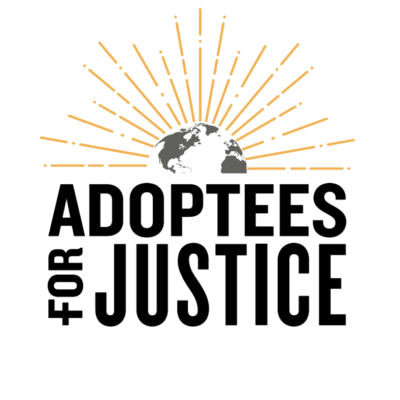Adoptees for Justice advocates for the passage of the Adoptee Citizenship Act. You can help, but time is running out.
By Chris Wodicka
In a few weeks, it will be the 30th anniversary of my becoming a U.S. citizen. Even now, I can’t begin to tell you exactly what was required or how long it took. My adoptive parents successfully navigated that process for me when I was just a child, several years after my adoption from South Korea. We celebrated as a family afterward, but I didn’t understand what it all meant at the time. Today, I see more clearly how that piece of paper has shaped my life and what I have been allowed to take for granted. As a citizen, I have been able to vote in elections year after year my entire adult life. I have been able to work, get a U.S. passport, and receive federal financial aid. I have not lived in fear of deportation.
Other transnational adoptees have not been as fortunate. In many cases, the steps required for naturalization were not clearly communicated by the government or adoption agencies to adoptive parents. Today, it is estimated that thousands of adults who were adopted as children lack U.S. citizenship. These adoptees fall into a loophole from the Child Citizenship Act (CCA) that was signed into law in 2001. The CCA granted citizenship to many adoptees who were still minors at the time of enactment but excluded others, including adult adoptees born before 1983. The bipartisan Adoptee Citizenship Act of 2019, which would close much of the loophole, has been sponsored by Congressman Adam Smith of Washington and introduced in Congress, where it awaits committee action and a floor vote in the House. This legislation would grant citizenship to more than 50 deported adoptees and other adoptees without citizenship who are still in the U.S. It would also provide the citizenship that all intercountry adoptees are entitled to as the children of U.S. citizens, end the unequal treatment between adopted and biological children of U.S. citizens, and allow deported adoptees to come home, reunite with their families, and rebuild their lives.
Due to the widespread erasure of adoptee voices, many people’s understanding of adoption comes largely from the perspective of adoption agencies and adoptive parents. This mainstream, mostly positive narrative frames adoption around “families” and “love.” In contrast, for many adoptees, the experience is more complicated and often traumatic. These feelings can be acute and front of mind. In other cases, these traumas linger in the background, shaping how we perceive our place in the world: in our families, friendships, and sense of belonging. They can resurface without warning.
Even though I have been struggling with my own Korean American identity and adoptee experience, I was largely ignorant of the issue of adoptee citizenship. While I have supported other immigration measures in the past, I did not learn of the Adoptee Citizenship Act until earlier this year. Finally, I read and heard more stories of deported adoptees who’ve been forced to confront this other form of separation. As I’ve tried to learn more, I’ve come to better appreciate how U.S. policy falls far short. After all, many of our fellow Americans—both adoptees and other immigrants—cannot fully participate in U.S. life, even though this may be the only country they have known.
I believe issues of families and belonging are always paramount, and our current crises have only magnified this urgency. During this pandemic, we all probably know families who are struggling with forced time apart. Holidays, birthdays, and major life milestones are conducted via Zoom or FaceTime. For adoptees who have been deported, the uncertainty of not knowing when they will next see their loved ones has been the reality since even before COVID-19. Without the Adoptee Citizenship Act, deported adoptees will remain in unfamiliar countries, separated from their families and friends, and uprooted from their homes. For those who lack access to economic relief from their country of origin or from the U.S., where can they turn? When it comes to addressing policy failures that span years, we cannot completely atone for the injustices of the past. All we can do is act. With the bill expiring on December 10, it’s up to all of us to come together and demand our elected representatives in Congress pass the Adoptee Citizenship Act and finally provide internationally adopted Americans with the citizenship we were promised.
Chris Wodicka is a transnational transracial Korean American adoptee. He is a member of Adoptees for Justice and lives in Richmond, Virginia.
Adoptees for Justice is an intercountry adoptee-led organization whose mission is to educate, empower, and organize transracial and transnational adoptee communities to achieve just and humane adoption, immigration, and restorative justice systems. Learn more about adoptee citizenship at adopteesforjustice.org.

BEFORE YOU GO…
Look on our home page for more articles about adoptees, NPEs/MPEs, and genetic genealogy.
- Please leave a comment below and share your thoughts.
- Let us know what you want to see in Severance. Send a message to bkjax@icloud.com.
- Tell us your stories. See guidelines.
- If you’re an NPE, adoptee, or donor conceived person; a sibling of someone in one of these groups; or a helping professional (for example, a therapist or genetic genealogist) you’re welcome to join our private Facebook group.
- Like us on Facebook and follow us on Twitter and Instagram @Severancemag.

